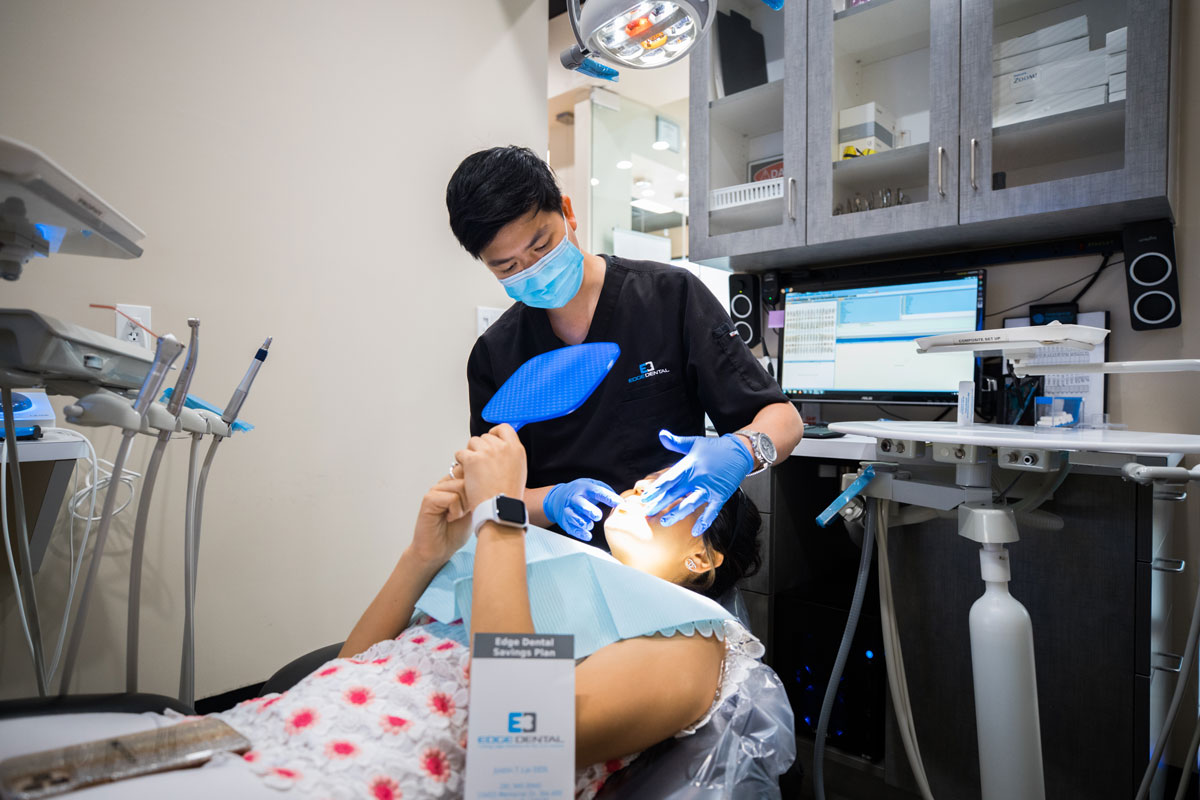What Are the Advantages of Porcelain Crowns in Houston?
When it comes to dental restorations, Porcelain Crowns Houston are a popular and effective option for many patients. Their durability, aesthetic appeal, and biocompatibility make them a preferred choice for both dentists and patients alike. If you're considering getting porcelain crowns in Houston, you likely have several questions about the benefits, the process, and what to expect, especially if a temporary crown is involved.
Why Choose Porcelain Crowns?
Porcelain crowns offer several advantages that make them a superior choice for restoring damaged or decayed teeth. Here are some of the key benefits:
Natural Appearance
One of the most significant advantages of porcelain crowns is their natural appearance. Porcelain closely mimics the translucency and color of natural teeth, making it difficult for others to distinguish between the crown and your natural teeth. This is particularly important for front teeth, where aesthetics play a crucial role.
Durability and Strength
Porcelain crowns are incredibly durable and can withstand the daily wear and tear that comes with chewing and biting. While they are not indestructible, they offer a strong and long-lasting solution for restoring damaged teeth. With proper care, porcelain crowns can last for many years, making them a cost-effective option in the long run.

Biocompatibility
Porcelain is a biocompatible material, meaning it is not likely to cause allergic reactions or adverse effects when placed in the mouth. This makes porcelain crowns a safe option for most patients, including those with sensitivities to metals used in other types of crowns.
How Does the Process of Getting Porcelain Crowns Work?
Understanding the process of getting porcelain crowns in Houston can help alleviate any concerns or anxieties you might have. The procedure generally involves several steps, including the placement of a temporary crown.
Initial Consultation and Examination
The first step is to schedule an initial consultation with your dentist. During this visit, the dentist will examine your teeth, take X-rays, and discuss your dental history. This helps determine if porcelain crowns are the best option for your needs.
Tooth Preparation
Once the decision is made to proceed with porcelain crowns, the next step is to prepare the affected tooth. This involves removing a small amount of the tooth's outer structure to make room for the crown. The amount of tooth removed depends on the extent of the damage and the type of crown being used.
Impressions and Temporary Crown Placement
After the tooth is prepared, the dentist will take an impression of your teeth. This impression is sent to a dental lab, where the permanent porcelain crown is custom-made to fit your tooth precisely. While waiting for the permanent crown, the dentist will place a temporary crown on the prepared tooth. The temporary crown protects the tooth and maintains its function and appearance until the permanent crown is ready.

What to Expect with a Temporary Crown?
A temporary crown serves as a placeholder while your permanent porcelain crown is being crafted. It's essential to understand what to expect during this period and how to care for your temporary crown.
Sensitivity and Discomfort
You might experience some sensitivity or discomfort after the placement of the temporary crown. This is normal and should subside within a few days. Over-the-counter pain relievers can help manage any discomfort.
Eating and Chewing
With a temporary crown, it's crucial to avoid hard, sticky, or chewy foods that can dislodge or damage the crown. Stick to softer foods and chew on the opposite side of your mouth to prevent putting too much pressure on the temporary crown.
Oral Hygiene
Maintaining good oral hygiene is essential while you have a temporary crown. Brush your teeth gently, especially around the temporary crown, and use dental floss with care to avoid pulling on the crown.
How Is the Permanent Porcelain Crown Placed?
Once your permanent porcelain crown is ready, you'll return to your dentist's office for the final placement.
Removing the Temporary Crown
The dentist will begin by removing the temporary crown and cleaning the tooth. Any remaining adhesive or debris will be thoroughly cleaned to ensure a secure fit for the permanent crown.
Fitting the Permanent Crown
The permanent porcelain crown is then placed over the prepared tooth. The dentist will check the fit, color, and alignment, making any necessary adjustments to ensure a perfect match. Once everything is satisfactory, the crown is permanently bonded to the tooth using a strong dental adhesive.
Final Adjustments and Polishing
After the permanent crown is bonded in place, the dentist will make any final adjustments to ensure your bite is comfortable and the crown fits seamlessly with your natural teeth. The crown is then polished to give it a smooth, natural finish.
What Are the Long-Term Benefits of Porcelain Crowns?
Porcelain crowns offer numerous long-term benefits, making them an excellent investment in your dental health and overall well-being.
Enhanced Aesthetics
The natural appearance of porcelain crowns can significantly enhance your smile and boost your confidence. Whether you're restoring a single tooth or multiple teeth, porcelain crowns blend seamlessly with your natural teeth, providing a uniform and attractive smile.
Improved Functionality
Porcelain crowns restore the full function of damaged or decayed teeth, allowing you to eat, speak, and smile with confidence. They provide the strength and durability needed to withstand daily use, ensuring your restored teeth can handle the demands of everyday life.
Longevity
With proper care and maintenance, porcelain crowns can last for many years, sometimes even decades. Regular dental check-ups, good oral hygiene practices, and avoiding habits like teeth grinding can help extend the life of your crowns.
How to Care for Porcelain Crowns?
Taking care of your porcelain crowns is essential to ensure their longevity and maintain your oral health. Here are some tips for keeping your crowns in top condition:
Maintain Good Oral Hygiene
Brush your teeth at least twice a day and floss daily to keep your teeth and gums healthy. Use a non-abrasive toothpaste to avoid scratching the surface of your porcelain crowns.
Avoid Hard and Sticky Foods
While porcelain crowns are durable, they can still be damaged by excessive force. Avoid biting down on hard objects like ice or popcorn kernels and be cautious with sticky foods that can pull at the crowns.
Regular Dental Check-Ups
Visit your dentist regularly for check-ups and cleanings. Your dentist can monitor the condition of your crowns and address any potential issues before they become significant problems.
Address Teeth Grinding
If you grind your teeth at night, talk to your dentist about getting a custom night guard. Teeth grinding can cause wear and damage to your porcelain crowns, so protecting them with a night guard is essential.
Are There Any Alternatives to Porcelain Crowns?
While porcelain crowns offer many advantages, they may not be the best option for everyone. Here are some alternative dental restorations to consider:
Metal Crowns
Metal crowns, made from gold or other metal alloys, are highly durable and long-lasting. They are less likely to chip or break compared to porcelain crowns, making them a good option for molars that endure heavy chewing forces. However, metal crowns are not as aesthetically pleasing as porcelain crowns.
Porcelain-Fused-to-Metal (PFM) Crowns
PFM crowns combine the strength of metal with the natural appearance of porcelain. These crowns have a metal base with a porcelain overlay, offering a balance between durability and aesthetics. However, the metal base can sometimes be visible at the gum line, especially if the gums recede over time.
All-Ceramic Crowns
All-ceramic crowns are made entirely of ceramic material, offering excellent aesthetics and a natural look. They are a good option for front teeth but may not be as durable as porcelain crowns for molars and premolars.
Zirconia Crowns
Zirconia crowns are made from zirconium dioxide, a strong and durable material. These crowns offer excellent strength and aesthetics, making them suitable for both front and back teeth. Zirconia crowns are also biocompatible and less likely to cause allergic reactions.
Conclusion
Porcelain crowns in Houston provide an effective and aesthetically pleasing solution for restoring damaged or decayed teeth. Their natural appearance, durability, and biocompatibility make them a preferred choice for many patients. Understanding the process, including the placement of a temporary crown, and knowing what to expect can help you feel more confident about your decision. With proper care, porcelain crowns can enhance your smile and improve your dental health for years to come. Whether you're considering porcelain crowns or exploring other dental restoration options, consulting with your dentist will help you make the best choice for your individual needs.
Comments
Post a Comment